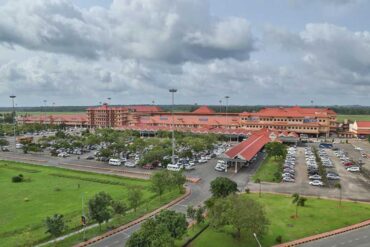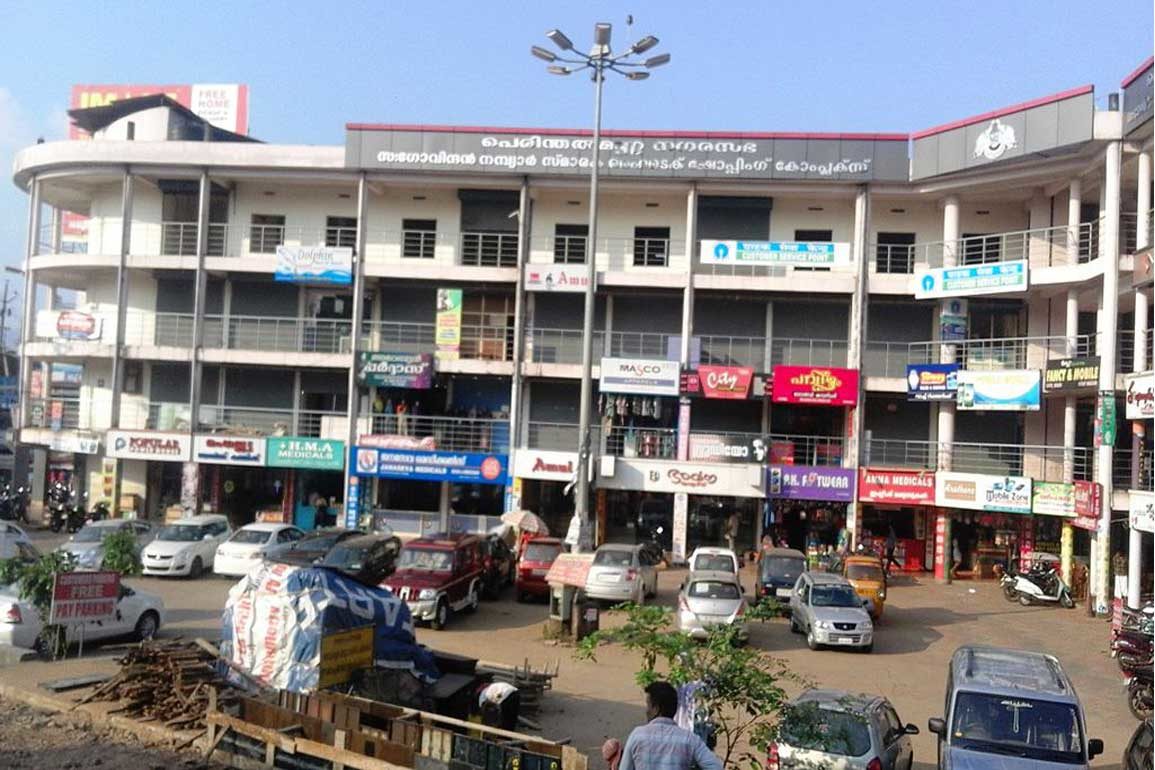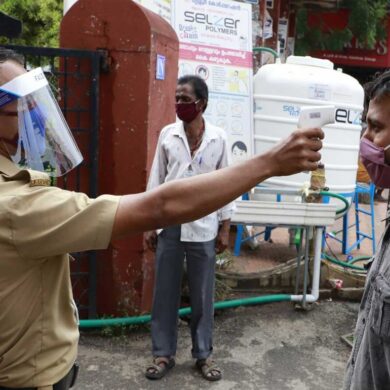When Ashraf T K reopened his textile shop at Kottakkal, of Malappuram district, after being forced to keep it shut for nearly two months, he received an immediate swell of support from customers. “It was good. They were like desperate for clothes after a gap of no shopping.” Then he saw the number of Covid- 19 cases in Kerala decrease significantly. And he thought everything is crawling back to normal.
But since then, sales started going downhill and customer footfall has slowed to a standstill, as people still preferred to either stay at home or save the money for the essentials. “A few days later, it is like nobody wanted anything. Some days, we did not even see a single customer,” he says.
Ashraf is one of many other retail store owners who hoped that the government decision to allow shops to function conditionally from May 4 would propel their struggling business forward. The initial surge of support from the customers only boosted their confidence. Yet, it did not make half the impact they hoped for.
Worse, as the days passed without any improvement in sales, they were even forced to cut the employees’ salaries or their staff strength in a desperate bid to stay afloat in market. “The government might have ordered the shops to reopen, but people do not want to spend, saving the money for more important things in future,” says Anil Kumar, a staff in a footwear shop in Manjeri.
While people are choosing to stay indoors after seeing a spike in Covid-19 cases, some store owners now take heart from the recent government order to allow auto-rickshaws to ply service. “This is helpful for both auto-rickshaw drivers and shops as it will bring customers to shops. They will start buying,” says Nisar T, an accountant in a shop in Chemmad, near Tirurangadi.
Most shops function out of rented buildings, and the store owners say they find it difficult to pay the rent due to the crisis they are undergoing . Muneer Shifa, Malappuram youth wing district secretary, Kerala Vyapari Vevasayi Ekopana Samithi (KVVES), said that they made recommendations to Building Owners Associations to give them rent breathers. They want at least the past two months’ rent waived off or 50 per cent of the rent slashed until December, as paying full amount will not be feasible.
“What we learn from experts is that the virus will stay here for longer than we think. The country’s economy may take at least a year to recover. We will not be able to survive if the sales don’t pick up soon,” says Noufal K, who runs a single-storey textile store in Kottakkal. What is worrying for the textile and footwear store owners is that this is the festival season and, with Eid al Fitr approaching, and they don’t see even 10 per cent of the sale they saw at this time last year.
Adding to the situation is the return of non-resident Indians en masse to Kerala. Muneer says that it has put the brakes on the fund flow into the market, rendering many penniless. “Gulf employees were the backbone of our business and their arrival will leave a lasting impact on us.”
Among the badly affected are those running jewellery shops, textile, fancy and footwear stores who now sink into anxiety over slow sales and the prospect of a long, bleak road ahead. As the deadly pandemic left a huge hole in their daily income, KVVES has come up with strategies to boost the morale of small-scale businessmen.
“We conducted motivational classes after seeing our friends fall into anxiety over the crisis. It has helped them a lot. We will continue motivating them,” Muneer says. Besides, KVVES, in association with cooperative banks, has lent loans to the struggling businessmen with an interest rate ranging from 0 to 7 per cent.
Even as a lot of people stare at an uncertain future with little to no business, some are reaping the benefit of the present downturn, seeing a good cash influx to their business. Grocery store owner Musthafa P, of Vengara, is elated that he broke his earnings record during the lockdown after a surge in sales for the essentials goods. “There is a high demand for grocery items. Though we are allowed to open shops from dawn to dusk, we saw a huge spike in sales,” he says.
Supermarkets also were met with a never-before boost in sales. Some stores received a high number of customers that they had a tough time keeping them at a safe distance. At times, the customers were even sent back after the crowd got too big to manage for the owners. “We asked them to come back in the next day as keeping them all at a safe distance was difficult,” said a supermarket owner from Manjeri.







